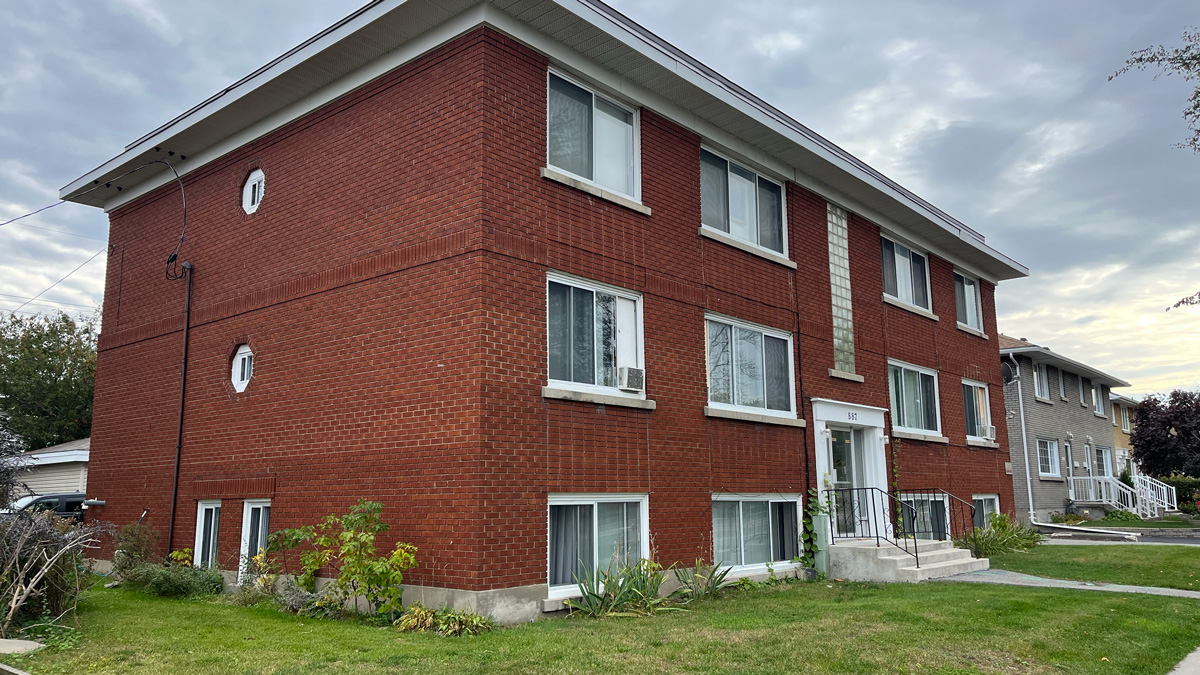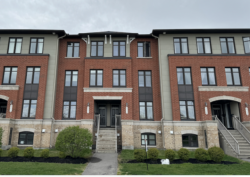An Ottawa non-profit with the stated goal of keeping housing affordable forever has acquired its first rental property on Kirkwood Avenue in Carlington.
The Ottawa Community Land Trust (OCLT) announced the purchase on Oct. 5. OCLT says it uses social finance and grants to acquire existing rentals.
Because OCLT isn’t looking to maximize profit, executive director Mike Bulthuis said the organization is able to provide housing at below-market rates.
“Ultimately, a community land trust is a community,” said Bulthuis. “A group of people coming together to try to remove land from the speculative market and place it under community ownership.”

Bulthuis said OCLT was incorporated as a federal non-profit in 2021, when it received funding through the federal government’s National Housing Strategy Demonstrations Initiative. Before then, he said affordable housing leaders in Ottawa discussed how to offer more security for co-ops and non-profits whose leases expired amid rising land values.
“One of the threads of our story was building a land trust that could engage in situations like that,” said Bulthuis. He added that government funding for affordable housing is mostly directed toward building new units, not acquiring existing properties.
OCLT made an offer on the Kirkwood property in April. Bulthuis said the organization found a seller who understood the organization’s mission and offered his organization more time to secure financing.
Part of the funding came from the city. In late August, city staff informed Ottawa’s Planning and Housing Committee that at the request of Kitchissippi Coun. Jeff Leiper, who chairs the committee, $400,000 in funding would be directed to OCLT.
The money, referred to as “Section 37 funds” was collected from developments that want to increase site density. In exchange, the city negotiates contributions toward community benefits.
With Bill 197, the Doug Ford government legislated an end Ottawa’s ability to collect these revenues. But some wards — including Leiper’s — still had leftover money.
“A lot of us would like to move ahead more aggressively with funding the acquisition of existing affordable housing,” Leiper said about OCLT’s acquisition. “The city wants to run things on a pilot base first. This is going to be an excellent opportunity for us to learn.”
Next steps
With the property secured, Bulthuis said the land trust will continue to introduce themselves to the community and work on establishing relationships across the city.
As for the tenants who live at the Kirkwood property, Bulthuis said his organization has been clear that “this change in ownership is not a reason for anybody to have to leave.”
He said two tenants approached him after the sale closed to inquire if they had to find a new home. “We said ‘no.’ Our purpose is to allow housing stability,” said Bulthuis.
He added that OCLT will respect rent control and follow Ontario’s guidelines with a 2.5 per cent allowable increase. When tenants leave, Bulthuis says OCLT will raise rents to 80 per cent of the average market rate. He estimates current tenants pay 60 per cent of the average market rent.
“That’s wonderful, but it is probably not sustainable on a property like this. So we’ll raise to still less than what market rent is, but that will only happen on turnover,” said Bulthuis.
The next big step for OCLT, Bulthuis said, is a community bond campaign. According to city documents, community bonds are a form of social finance that “allow non-profit organizations to leverage community supports, as community members can purchase bonds, with specific terms and rates of return.”
Bulthuis said the bonds are called Housing Forever Bonds, and will be managed by Tapestry Community Capital. The goal is to raise $500,000 to put toward the first property and then raise additional money to acquire future properties.
“We want to be known as an excellent landlord,” Bulthuis said.
Land acquisition programs needed
Joshua Barndt is the executive director of the Parkdale Neighbourhood Land Trust (PNLT) in Toronto. He says the organization’s first acquisition was completed in 2019. Today, PNLT has 85 properties.
Barndt says that following their pilot project, Toronto collaborated with them to create the Multi-Unit Residential Acquisition (MURA) program, which offers funding to non-profit housing providers to secure existing rental stock.
In short, Barndt says municipalities should make sure there are “enabling policies that support non-profit acquisition of land and housing.”
No policy like MURA exists in Ottawa, but Bulthuis said the program is a “fantastic model” that he has been regularly discussing with councillors and staff.
Leiper said he has not done a deep dive into a program like MURA but does believe it’s “incumbent on the city to provide funds to help a land trust get up to speed and to start the acquisition process.”
Bulthuis said he sees OCLT’s first acquisition as a “proof of concept” that can bode well for the future.
“Some of the actions that we take today are so that we have affordable housing 20 years from now.”




